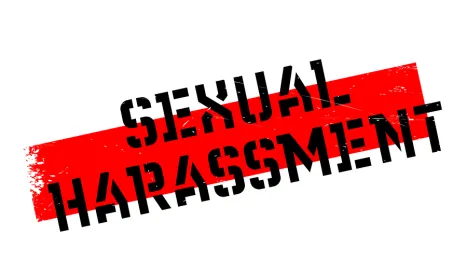One year ago today, 10 days after the Harvey Weinstein story broke, Alyssa Milano tweeted: “If you’ve been sexually harassed or assaulted write ‘me too’ as a reply to this tweet.”
While the #MeToo movement was started a decade ago by African-American activist Tarana Burke, Milano’s tweet ignited a huge outpouring on social media and a cultural turning point. In the nine days following Milano’s tweet, the #MeToo hashtag garnered 1.7 million tweets across every continent. Eighty-five countries had at least 1,000 #MeToo tweets. In the first 24 hours following Milano’s tweet, Facebook reported 12 million posts by 4.7 million users.
The #MeToo movement has dominated the news cycle over the past year. Headlines regarding sexual harassment at U.S. companies have continued, and the fallout has often been swift for the executives involved. CEOs at prominent companies across industries have been fired or stepped down after accusations of sexual misconduct. Even where claims fall outside the statute of limitations for employment (or in some cases even criminal) charges, the media has doggedly investigated claims of sexual harassment and misconduct. While the federal law has not changed, our society’s response to these serious issues is changing. For example, a defense attorney attributed a recent $13.4 million jury verdict against a sugar manufacturing company to the jury being empowered by the #MeToo movement.
Legislatures have been spurred to action as well. On a federal level, the Tax Cuts and Jobs Act of 2017 prohibits parties from deducting costs related to sexual assault and harassment settlements subject to nondisclosure agreements. States have been active in passing legislation restricting nondisclosure and arbitration agreements related to sexual harassment, requiring sexual harassment training, prohibiting state funds from being used for harassment-related settlements, and mandating sexual harassment policies. Arizona, California, Delaware, Louisiana, Maryland, New York, Vermont, and Washington have all passed #MeToo-related laws governing private employers. Connecticut, Minnesota, South Carolina, New Jersey, and Pennsylvania, among others, have proposed legislation. The U.S. House and Senate each have proposed bills to end forced arbitration of sexual harassment.
The Equal Employment Opportunity Commission (EEOC), whose budget was increased by $15 million for this fiscal year by Congress, has been active in the wake of #MeToo. In a somewhat unusual step, on October 4, 2018, it released preliminary data on sexual harassment for the 2018 fiscal year. The EEOC reported that out of the 66 harassment suits it filed, 41 included allegations of sexual harassment—a greater than 50 percent increase in sexual harassment suits from fiscal year 2017. The EEOC recovered nearly $70 million for sexual harassment victims in fiscal year 2018, a $22.5 million increase from fiscal year 2017. The agency is focusing its attention on sexual harassment. Somewhat surprisingly, the EEOC saw only a 12 percent increase in charges alleging sexual harassment from fiscal year 2017 to fiscal year 2018. Whether that smaller increase reflects a greater focus by employers on proactively addressing sexual harassment in light of the #MeToo movement is yet to be seen.
#MeToo and concern over sexual harassment in the workplace continues to be a hot topic. To protect their businesses, employers may want to consider taking the following actions:
- Conducting a #MeToo audit: Employers may want to review their current policies, training materials, and investigation procedures, and ensure they are up to date and compliant; provide employees with resources and direction both on the law and the company’s expectations for employee behavior; and review the efficacy and accessibility of their complaint systems.
- Modernizing employee training: Employers may want to implement training programs for both supervisors and frontline workers that include real-life examples and bystander intervention training.
- Lowering the threshold to trigger investigations: If rumors circulate or charges are raised through social media, employers may not want to wait for a formal report to be submitted to investigate.
- Balancing enhanced responsibility with the rights of alleged harasser: Many high-profile firings seemed to happen overnight. Employers may want to conduct a prompt and thorough investigation that considers all parties.
- Making senior leaders accountable: The tone is set at the top of an organization. Leaders need to demonstrate a public commitment that harassment will not be tolerated. Employers may want to ensure that they have an investigation process for claims against senior management.
- Having a public relations action plan in place: The #MeToo movement demonstrated that sexual harassment claims do not pose just a legal problem for employers, but a public relations problem as well. Many of the allegations that have rocked large companies are several years old and well past the statute of limitations for employment discrimination claims. However, they still have a profound impact on the company. Employers may want to be proactive in assessing risk and formulating a planned response.
- Preparing for the next wave: The #MeToo movement is spreading beyond sexual harassment and into general gender equality issues. Stakeholders, shareholders, and the public are demonstrating a commitment to a more equal workplace. Employers may want to consider conducting privileged promotion and pay equity audits by using outside counsel.
While the fundamental federal discrimination laws have not changed, the #MeToo movement is creating a new landscape for employers. This is an area in which cultural expectations and employer obligations are likely to continue to shift.





 />i
/>i

